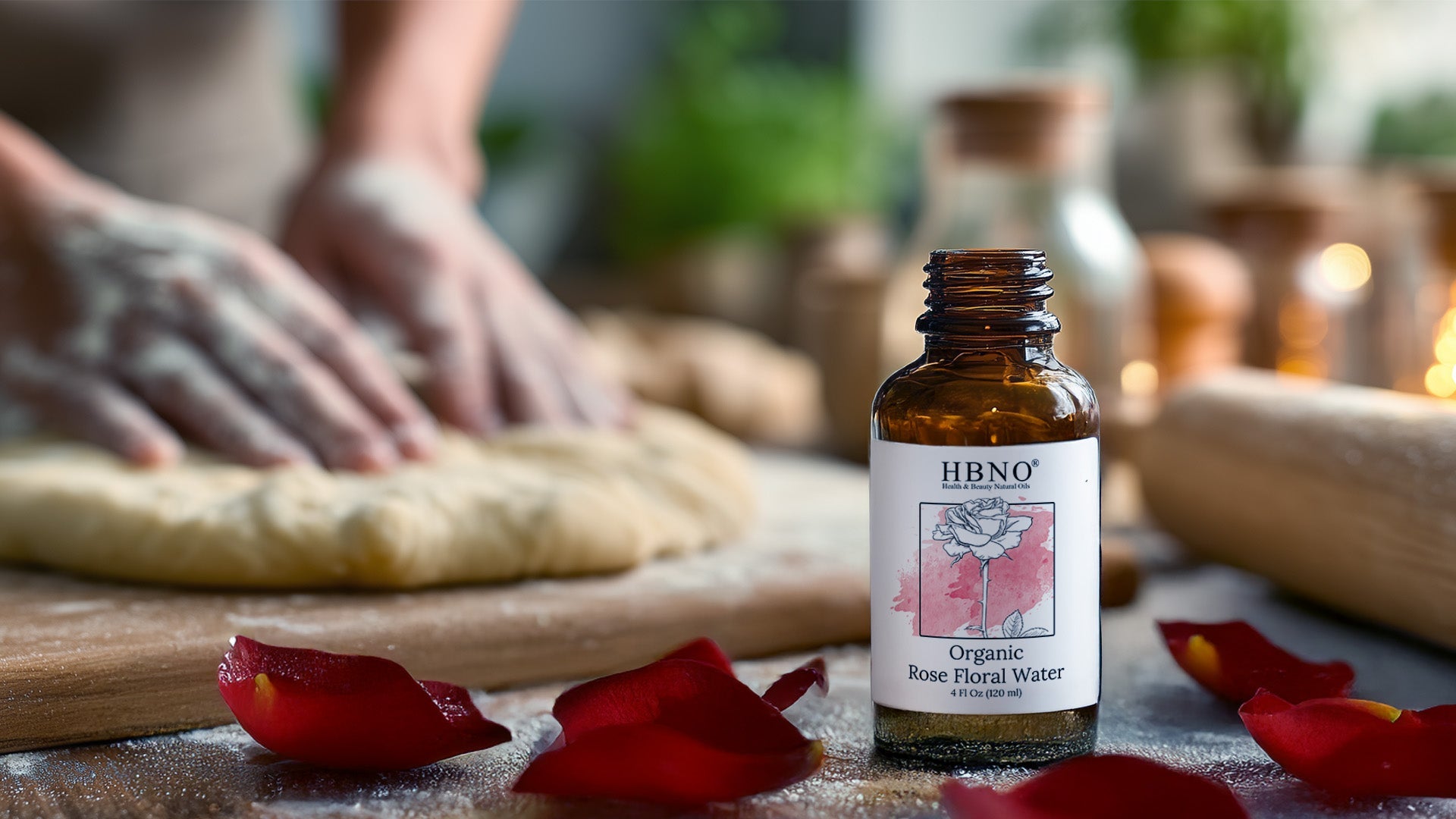
Rose Floral Water for Baking: Tips, Uses and Benefits
There's something timeless and charming about the soft essence of rose in baked goods. From subtly perfumed cookies to rich buttercreams and delicate pastries, bakers across cultures have long been drawn to rose floral water. Whether you're an avid baker or just experimenting with flavor infusions, you might have considered using this floral essence in your kitchen.
But what exactly is rose floral water? And how does it work when used in baking? Let's explore what rose floral water might bring to your bakes, the various ways it's possibly used, tips to consider while baking with it, and the potential benefits of rose floral water for baking that many enthusiasts seem to appreciate.
Potential Tips for Using Rose Floral Water in Baking
Most people often assess rose water for its useful properties in various areas. You may find these tips common among many people:
1. Use It Sparingly
The first and perhaps most common tip many experienced bakers suggest is to start small. Rose floral water might be potent, and adding too much could overpower the dish. Most say a few drops may go a long way in lending a subtle floral touch.
2. Pair it with the Right Ingredients
Some oil-based flavors seem to pair well with rose. You might explore combining it with pistachio, almond carrier oil, cardamom fragrance oil, vanilla, or even dark chocolate. These combinations may help balance the floral note and create more layered flavor profiles.
3. Test Before Scaling
If you're trying rose floral water in a new recipe, it could be helpful to test it in a small batch first. Various people prefer to adjust measurements and ensure the flavor intensity works for their personal taste or audience.
4. Consider the Type of Dish
Rose floral water used in baking may vary from recipe to recipe. In cakes, many people might add it to the batter or frosting. In cookies, it might be mixed into the dough or a sugar glaze. Some may also explore incorporating it into creams and puddings for an aromatic finish.
5. Choose Wisely Between Types
If you're using organic floral water, the overall taste experience might differ slightly from standard varieties. Some people prefer organic versions for their lighter scent or minimal processing, though this is often a matter of personal choice.
Potential Uses of Rose Floral Water in Baked Goods
You may explore multiple uses of rose floral water in food space, but not every method may suit you. Most people often talk about these uses:
1. Flavoring Cakes and Cupcakes
Some may like adding a few drops of rose floral water to vanilla or sponge cake batters. You might also mix it into buttercream frosting or whipped cream for a floral note.
2. Aiding Cookie Dough
Shortbread and sugar cookie recipes are where rose floral water uses are frequently explored by many. It could add a hint of complexity that pairs nicely with citrus zest or ground spices.
3. Scenting Syrups
You might find many people exploring the benefits of rose water in culinary applications. For example, many use it in sugar syrups that are poured over semolina cakes or baklava. When infused with cardamom or cinnamon leaf oil, rose floral water might possibly create a well-rounded flavor for traditional desserts.
4. Infusing Puddings and Custards
From rice puddings to crème brûlée, a few drops of rose floral water may be stirred in during the cooling phase. Many bakers explore this to offer a mild floral aroma to milk-based desserts.
5. Decorative Baking
Beyond flavor, rose floral water might be used in edible rosewater glazes, fondant, or icing decorations. Its inclusion could offer a more aromatic experience for the consumer.

Potential Benefits of Rose Floral Water for Baking
While it's always best to explore for yourself, here are some benefits of rose floral water for baking that many home and professional bakers mention:
1. Adds Distinctive Aroma
Most people like how rose floral water may lend an unmistakable fragrance to baked goods. It might elevate a dish from simple to something more refined or memorable.
2. Bridges Cultural Recipes
One of the lesser-discussed benefits of rose floral water for baking is how it might connect you with global traditions. From Indian desserts like gulab jamun to Persian sholeh zard (saffron rice pudding), rose water may act as a bridge between culinary heritages. Some also believe organic rose water is great for drinking.
3. Customizable Flavor Profiles
Since it's generally used in small quantities, rose floral water might allow you to experiment with layering flavors. You might blend it with citrus zest for freshness or spices for warmth.
4. Minimal Ingredients for Maximum Impact
Organic rose floral water might appeal to those who want to keep ingredient lists short. Just a drop or two may contribute to both the aroma and taste profile, helping reduce the need for artificial flavorings.
5. Great Taste Without Complexity
Some bakers say that the rose floral water used in icing or glazes may offer a refined touch without requiring complex preparation. It might bring charm to even the most basic recipes.
Conclusion
Rose floral water might just be the hidden gem your baking routine is missing. While not a staple in every kitchen, it's certainly gaining popularity among those looking to experiment with timeless flavors and aromatic depth. From cookies to cakes and from syrups to frostings, the rose floral water uses seem both versatile and delightful to explore.
Remember: a little can go a long way, and when used thoughtfully, this fragrant floral distillation might just become your favorite flavor enhancer. Whether you're baking for tradition, celebration, or curiosity, rose floral water might offer a new avenue to express your culinary creativity. At HBNO, you can find this floral water in premium quality along with our broad collection of top essential oils.